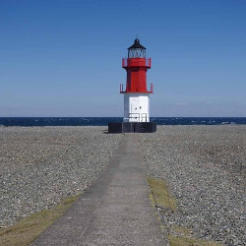Our weekly round-up of interesting and outlandish information, collected from the corners of the charity sector.
When is a charity like Virginia Woolf?
When something’s tall and thin and hard and called the Winkie, it’s easy to work out what it must be, right?
A lighthouse, obviously.
The Winkie lighthouse, on the Isle of Man, could be bought by a beach cleaning charity, Beach Buddies, after it launched a campaign to raise the sale price of £10,000.
The “iconic” lighthouse was apparently the perfect location for the charity. I suppose if you want to clean up beaches, it is at least local.
The lighthouse doesn’t have water or electricity, so you can probably forget about having a cup of tea when you get to work. But it does have an uninterrupted view of the Irish Sea, which is nice if you like that kind of thing.
You think it’s bad here
This week we’ve heard more stories of charities pressurising people, and God only knows the British public seem to have confidence that the sector is going to hell in a handbasket. At least if you read the comments on the Daily Mail website.
There’s no doubt that some of the fundraising tactics uncovered are a bit, um, uncharitable but even so, every time this comes up, Diary’s eyes turn across the pond, where corruption and mendaciousness is at a whole different level. Amazingly, Americans remain extremely generous to charities, despite a story almost every single week about how they’re being ripped off.
The latest, but by no means atypical, is a Vietnam charity which has raised more than $24m since 2003, spent 90 per cent of that on paying telephone fundraisers, most of the rest on staff, and a few thousand on actually helping anyone.
That’s not the biggest, though. That would be the Cancer Fund for America and its three sister charities, which turned out actually to be the Retirement Fund for James Reynolds, a con artist who together with his wife and son raised $187m in charitable donations for people with cancer and kept the whole lot for themselves.
Should have answered the phone
On a final note, we turn to research into charity chief executive pay, carried out by this website’s sister publication Charity Finance, which found that on the whole people at the top in the sector are well paid, but receive nothing like the eye-watering salaries paid in most other places.
The story brought various people out of the woodwork to comment.
One fellow said it was sad that “career people in the voluntary sector become rather addicted to their salary”, which gave Diary a moment’s pause for thought. After all, aren’t people everywhere addicted to their salaries? Diary is more than mildly partial to a salary every so often, mostly as a means of being able to afford to eat, drink and live indoors.
Working for good causes without remuneration is no doubt an honourable estate, but it is one which Diary will not be striving towards any time soon, to be honest.
Anyway we’ve now had the dubious pleasure of having our research picked up in The Sun newspaper, which boldly labelled it an exclusive despite admitting they’d nicked it all off us, then stripped out anything positive we’d had to say and used it as another stick to beat charities for paying people at all.
And a strange thing has happened. When we were conducting the survey, we diligently contacted all the top charities to find out if they wanted to say anything, and got short shrift from most of them. But now it’s in The Sun, all sorts of people have suddenly come out of the woodwork and started telling us that their staff are far more modestly paid than had previously been reported.
Obviously we look forward to a long, productive chat when we get you on the phone for the next survey, in two years’ time.










